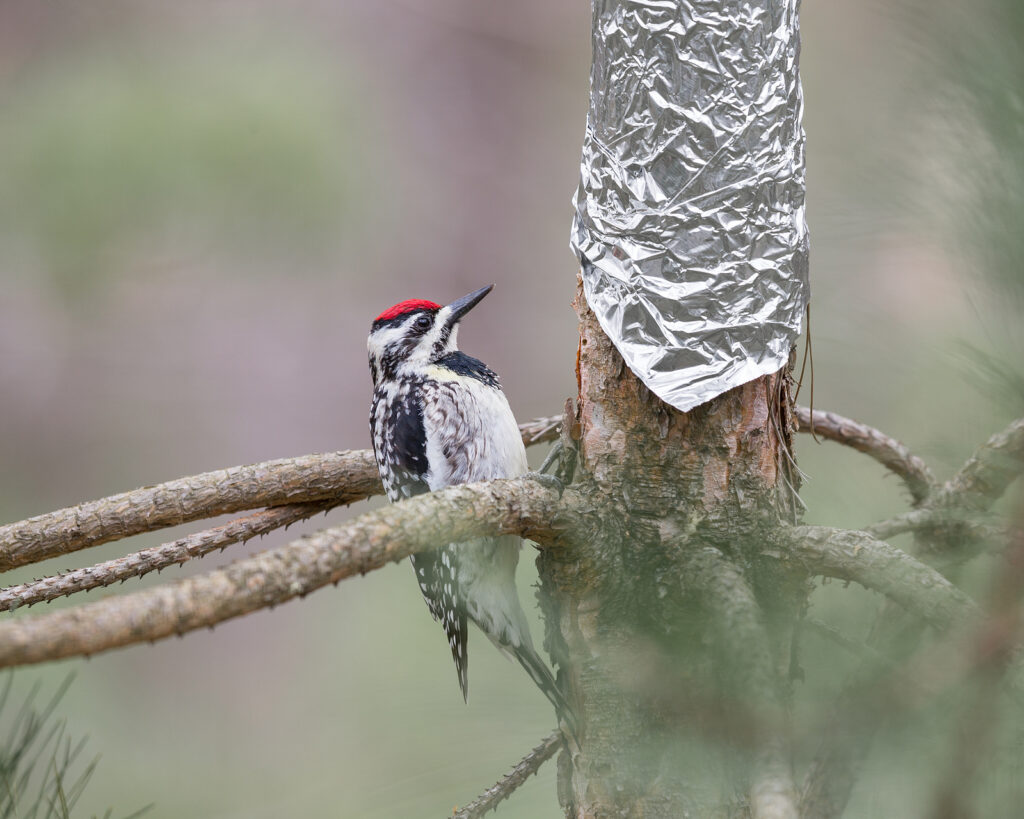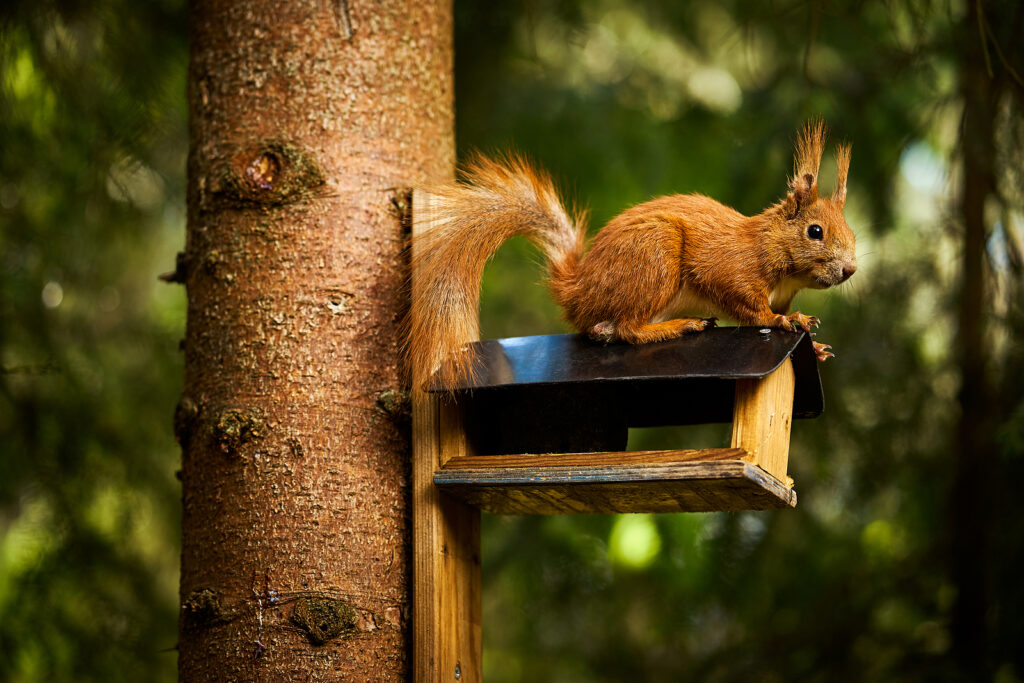Woodpeckers are an interesting breed of bird that have earned themselves a bad reputation among tenants, homeowners, and commercial property owners. Although highly beneficial parts of our surrounding Nashville, Tennessee Eco-systems, woodpeckers are a real nuisance for home and business owners. Not only are they noisy, but they also leave behind unsightly structural damage to homes, sheds, buildings, and even trees. If you are experiencing a woodpecker problem in Nashville, it is time to learn how to manage it safely and effectively.
Continue reading to learn more about woodpeckers, and how to get rid of them on your Nashville, Tennessee property.

Why Do Woodpeckers Peck?
There are three main reasons why woodpeckers peck: foraging for food, marking their territory, and chiseling for shelter. All three of these initiatives are carried out with a different type of pecking manner, the most damaging of which is excavating for shelter. Woodpeckers can cause an extreme amount of damage to siding and wood structures on residential and commercial properties with these pecking behaviors. They leave behind large, hollow pecking holes that are distinctive to woodpecker damage.
How to Get Rid of Woodpeckers Safely
Fortunately, there are some safe and simple ways to get rid of woodpeckers without harming or killing them. In fact, it is important to know that woodpeckers are protected by state and federal laws. It is illegal and highly immoral to trap, harm, shoot, or kill woodpeckers without the proper licenses. The only authorized personnel permitted to deal with woodpecker control is wildlife rescue contractors.
Bird Deterrents That Target Woodpecker Species in Tennessee
You have a few options, in terms of deterrents, when it comes to getting rid of woodpeckers. You can choose to use tactile deterrents, visual deterrents, or sound deterrents to thwart woodpecker activity on your property. All three of these methods are non-lethal to birds and other animals, and relatively inexpensive to purchase.
▷ Tactile Deterrents – There are products available on the market that are designed to adhere to woodpeckers down feather or fluff, preventing them from being able to fly or stay warm. These sticky repellents are not a good option since they put woodpeckers in danger and cause them to suffer. It is only recommended to use these products for extreme cases of woodpecker infestation. Examples of brands available include Bird Stop, Roost-No-More, and Tanglefoot Pest Control.
▷ Visual Deterrents – Also a much safer approach, visual deterrents tend to work very well. Things like aluminum foil or reflective tape strips are frightening to woodpeckers. Hanging strips of aluminum foil, or using products like Irri-Tape, can thwart woodpecker presence overnight. Hang them long enough to blow in the breeze for best results. Also consider hanging windsocks, handheld windmills, and even plastic owls.
▷ Sound Deterrents – Using sound machines that mimic common woodpecker predators, like hawks, can work well. The BirdXPeller Pro sound machine uses a woodpecker distress call followed by a Sharp-shinned Hawk call to scare woodpeckers away. Using sound deterrents works very well, especially when coupled with visual deterrents as well.
Looking for professional bird and wildlife abatement you can afford? Contact Smoky Wildlife Control at 615-610-0962 for prompt and professional bird removal in Nashville, Tennessee. We serve all surrounding areas with commercial and residential critter control and cleanup.
You Might Also Like:
FAQS About Animal Damages and Clean Up
The Common Signs of Bats in the House
Why You Should Not Feed the Wild Animals Around Your House


